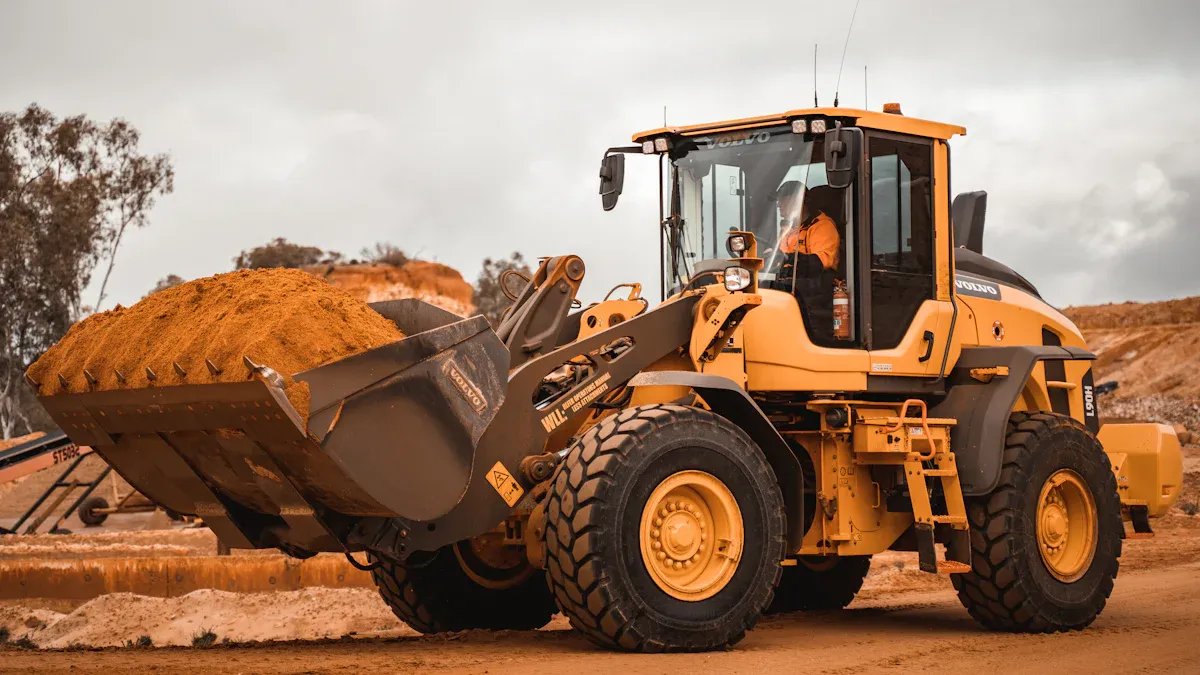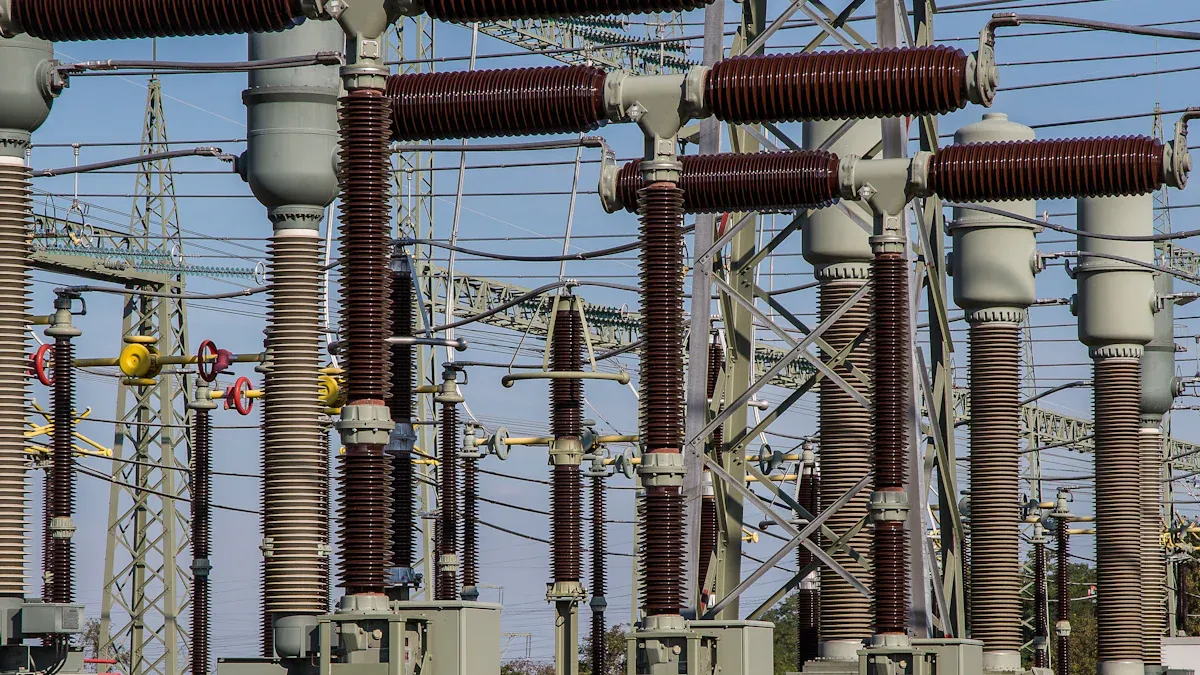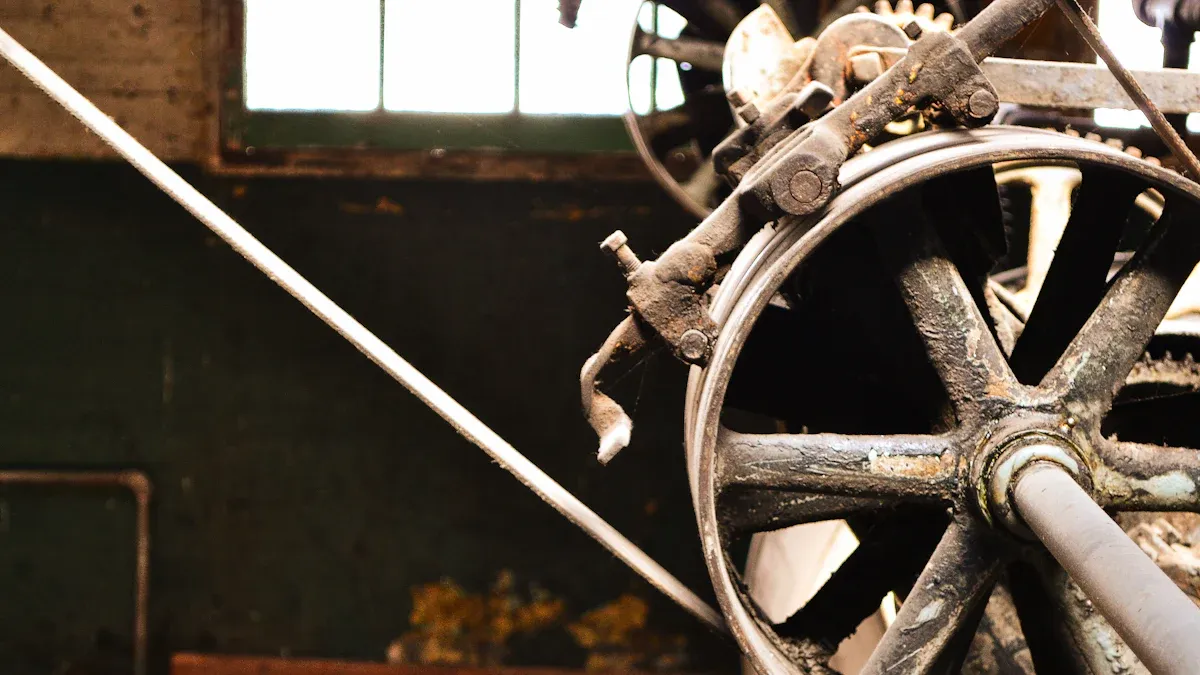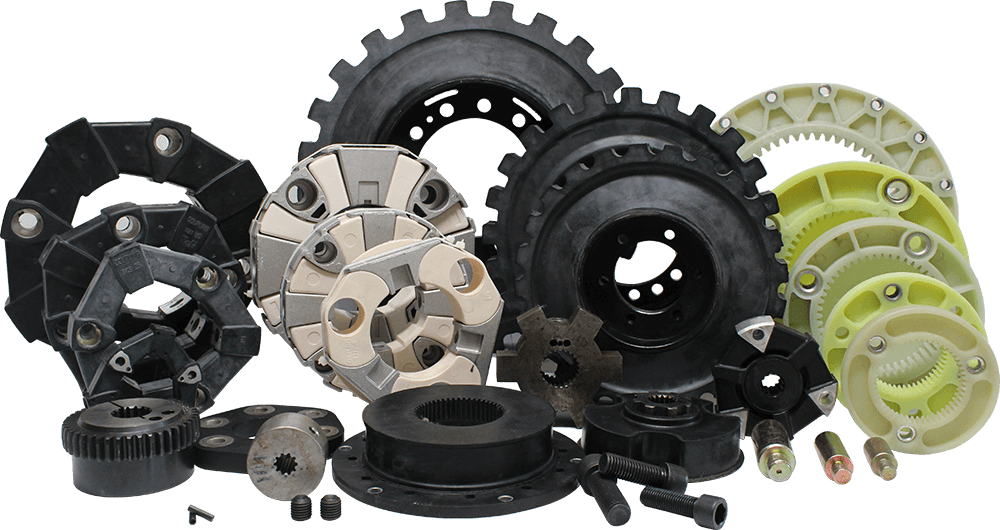
You might notice your car rides smoothly on the road. Engine rubber mounts are important for this comfort. They soak up engine vibrations and lower noise inside your car. When these mounts work right, engine parts do not wear out fast. The table below shows how they help save money on repairs:
Aspect | Description |
|---|---|
Contribution to Maintenance | Stops too much wear on car parts from vibrations. |
Importance in Heavy Vehicles | Very important for big trucks where engine shakes affect how they work and feel. |
Industry Focus | Focused on making drivers comfortable and keeping repair costs down. |
Knowing about engine rubber mounts helps you take care of your engine and have a nicer drive.
Key Takeaways
Engine rubber mounts take in vibrations. This makes your ride feel smoother and less noisy.
Check your engine mounts often for damage. This helps you avoid expensive repairs and keeps you safe.
Picking good engine mounts can help your car work better. It can also help your car last longer.
Engine Rubber Mounts and Their Role

Vibration Absorption
Engine mounts help make your ride smoother. They hold the engine in place. This stops the engine from shaking the car. When the engine runs, it makes vibrations. These vibrations can move through the chassis. Engine rubber mounts work like soft pads. They catch the vibrations and stop them from reaching you or other car parts.
Studies show rubber mounts are best for stopping vibrations. Experts tested natural rubber, Butyl rubber, and fluorocarbon. They learned blended rubber mounts block more engine vibration at many speeds and spots. Chrysler started using rubber engine mounts in the 1930s. This made cars smoother and less noisy. Now, almost all passenger cars use engine rubber mounts. They help you have a comfy ride and keep your car safe from harm.
Tip: Check your motor mounts often for damage. If engine mounts wear out, more vibrations get inside and parts can break faster.
Engine mounts keep the engine away from the chassis.
Motor mounts stop strong vibrations and help rides feel smooth.
Rubber mounts help control vibration and meet noise rules.
Noise Reduction
Engine mounts do more than stop shaking. They also help make your car quieter. When the engine is on, it makes noise and shakes. Rubber motor mounts soak up these sounds and keep the cabin quiet. You hear less noise when mounts work well. If mounts get old, you hear more engine noise and feel more shaking.
Research shows engine rubber mounts are key for less noise, vibration, and harshness (NVH). Old motor mounts cannot block vibrations as well. This means more noise and a rougher ride. Good engine mounts keep your car quiet and comfy.
Engine mounts let you listen to music or talk without loud engine sounds.
Motor mounts protect your ears from strong noises.
Engine rubber mounts keep noise low and make driving better.
Engine Stability
Engine mounts help keep the engine steady. Motor mounts hold the engine so it does not move too much. When you drive, the engine shifts and pushes on parts. Engine rubber mounts keep the engine in place and stop it from getting out of line. This helps all parts work together and stops damage.
Rubber mounted bearings, like engine mounts, help keep the engine lined up and steady. They block vibrations and lower stress on other parts. Motor mounts also let the engine move a little when you drive. This keeps stiff parts from breaking or wearing out.
Engine mounts keep the engine steady when you turn or stop.
Motor mounts protect the chassis and other parts from engine moves.
Engine rubber mounts help your car last longer by lowering stress and wear.
Note: Strong engine mounts mean safer driving and fewer repairs. Check your motor mounts if you see extra movement or noise from the engine.
How Engine Mounts Work
Rubber Mounts Structure
When you open the hood, you can see engine mounts. These parts link the engine to the car’s frame. Most engine mounts are made from both rubber and metal. The rubber is placed between two metal plates. This setup lets the rubber soak up shaking from the engine. When the engine is running, it moves and shakes. The rubber bends and stretches to take in the energy. It changes this energy into heat. This stops the shaking from spreading to the rest of your car.
Vibration isolation: The rubber in engine mounts keeps vibration away from the chassis.
Energy absorption: Rubber bends when pushed, which lowers vibration.
Shock absorption: Rubber mounts protect important parts from sudden hits.
Some new engine mounts use polyurethane for better control and longer life. Some companies add strong steel brackets to make mounts tougher. These updates help your car ride smoother and last longer.
Tip: For good engine rubber mounts, try YNF Rubber. Their products help your engine stay quiet and smooth.
Strategy | Description |
|---|---|
Material Selection | New materials like polyurethane help with heat and vibration. |
Prototyping | Real-world tests find weak spots before making lots of mounts. |
Collaboration | Engineers and scientists team up for better designs. |
Computational Analysis | Computers test stress and help make mounts last longer. |
Hydraulic Engine Mounts
Some cars have hydraulic engine mounts. These mounts have a space filled with hydraulic fluid. The fluid helps take in movement and shaking from the engine. Hydraulic engine mounts cushion the engine better than just rubber. You feel less shaking and noise inside the car.
Feature | Rubber Engine Mounts | Hydraulic Engine Mounts |
|---|---|---|
Vibration Transmission | More vibration goes to the cabin | Cushions movement, less vibration |
Performance under Stress | Better at handling twist and flex | Slower to respond |
Ideal Use | Best for sporty driving | Good for daily and racing cars |
Comfort Level | Less comfy because of vibration | More comfort inside the car |
Stiffness | Matches stiffness for better power | Gives a smoother ride |
Hydraulic engine mounts are best for cars where comfort is important. You get a smoother ride and less noise. Rubber engine mounts are good for cars that need strong power and quick moves. Both types keep the engine safe and help your car work well.
Chassis Flexibility
Engine mounts are important for how your car handles. They link the engine to the chassis and keep it steady. When mounts work right, they soak up shaking and stop the engine from moving too much. This keeps the chassis and other parts safe from harm.
Engine mounts link the engine to the chassis for steadiness.
They soak up shaking and stop too much engine movement.
Good mounts lower vibration, so your car lasts longer.
Role of Engine Mounts | Impact on Vehicle Handling and Safety |
|---|---|
Securing the Engine | Stops misalignment and damage to other parts, making driving more stable. |
Dampening Vibrations | Makes rides smoother and lowers stress on parts, helping with handling. |
Reducing Noise and Shock | Keeps the chassis safe from too much stress, making the car safer and more comfy. |
Note: If engine mounts break, your engine, transmission, or chassis can get damaged. Too much shaking can wear out key systems. If the engine moves too much, it can even hurt steering and brakes, which is unsafe.
Block Quote:
The biggest challenge in engine mounting is making sure the engine’s movement and the forces it sends out are controlled. But this does not always mean the problem is solved. In a car, the mounts are on a lighter structure. In a test, they might be on a heavy base. These things change how the system works compared to the engine in a real car.
You need strong engine mounts to keep your car safe and comfy. When you pick good mounts, you protect your engine and get better handling every time you drive.
Signs of Engine Mount Wear

Common Symptoms
You can spot engine mount problems if you know what to look for. Drivers often report several signs when engine mounts begin to fail. Here are the most common symptoms:
You feel increased vibrations and noise when you start the engine.
The car lurches or rocks more than usual at startup.
You notice a bumpier ride, especially when changing gears or driving faster.
You hear clunks or bangs from the engine moving too much.
You see corrosion, cracks, or warps in the engine mount.
If you notice excessive engine vibration, you should check your engine mounts right away. These symptoms mean your engine mounts may not absorb engine vibrations as they should.
Risks of Failure
Ignoring worn engine mounts can lead to bigger problems. When engine mounts break, your engine can move too much. This movement may cause damage to other parts. Some drivers have reported hearing strange sounds and even seeing smoke after an accident broke their engine mount. A broken mount can drag on other parts, like the water pump pulley, and cause more damage.
Running your engine with a broken mount can lead to serious mechanical issues.
Stress from impacts can make weak engine mounts fail faster.
You might face dangerous conditions, such as smoke or damage to internal components.
Note: Engine mount failure can affect your safety and make your car harder to control. Always pay attention to new noises or movements from your engine.
Maintenance Tips
You can help your engine mounts last longer by following some simple steps:
Get regular inspections during routine maintenance to catch problems early.
Drive gently. Avoid rapid acceleration, hard braking, and sharp turns.
Keep your suspension and related parts in good shape to reduce stress on engine mounts.
Choose high-quality parts from trusted suppliers like YNF Rubber when you need motor mount replacement.
Protect your car from extreme weather and road salt to slow down rubber aging.
Field studies show that high temperatures can soften rubber and speed up aging. If you live in a hot climate, check your engine mounts more often. Taking care of your engine mounts helps prevent excessive engine vibration and keeps your engine running smoothly.
Taking care of engine rubber mounts helps your car last longer. These mounts soak up shaking and keep the engine steady. They also help other car parts work better for more time. If you check and change engine mounts when needed, you spend less on repairs. This also makes your car safer. YNF Rubber makes strong engine mounts you can trust.
Why you should look after engine rubber mounts:
Less shaking and noise in your car
Keeps the engine in place
Stops other parts from breaking
Makes driving safer
Aspect | Description |
|---|---|
Responsible Disposal | Throwing away mounts the right way helps nature. |
Recycling Methods | Cutting up old mounts makes new things. |
Eco-Conscious Approach | Recycling is good for the planet. |
FAQ
How often should you check your engine rubber mounts?
You should check your engine mounts every 30,000 miles or during regular service. Look for cracks, wear, or loose parts.
What happens if you ignore worn engine mounts?
Ignoring worn mounts can cause more noise, shaking, and damage to your engine. You may also face higher repair costs.
Where can you buy quality engine rubber mounts?
You can buy reliable engine rubber mounts from YNF Rubber. They offer strong, long-lasting products for your car.









